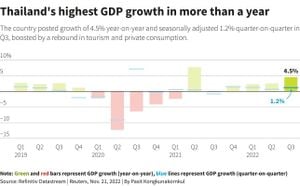Food safety initiatives across India are gaining momentum as the government and various organizations strive to create greater awareness about nutrition, hygiene, and healthy eating practices. Recent events showcase the efforts being undertaken to promote these ideals, including fairs focusing on organic products and the recognition of schools committed to food safety.
One of the notable events took place at theMunicipal Council grounds in Kangra, where the Food Safety and Standards Authority of India (FSSAI) hosted the Eat Right India Fair. This fair was primarily aimed at educating the public about the benefits of consuming organic products and coarse grains. The occasion was marked by the launch of Majestic by Mishal Investor Dharmeta, which displayed various organic products like dry fruits, pink salt, ghee, and pickles. Attendees were impressed by the quality of these items and were encouraged to adopt them for healthier lifestyles. The underlying message of the event emphasized the necessity of incorporating organic foods not only for personal health but also for environmental sustainability.
According to Punjab Kesari, the fair succeeded in highlighting the integral role of organic products and how their consumption promotes both health and ecological well-being. This initiative complements the central premise of the Eat Right India movement, which aims to guide consumers toward healthier food choices.
On the educational front, three schools—Panchayat Union Middle School Tiruvallur, Panchayat Union Middle School Kammavarkandigai, and Panchayat Union Middle School Nelvoy—have recently been awarded Eat Right School certificates for their commitment to food safety awareness. These certificates, issued by the Tiruvallur district Food Safety Department and valid until February 21, 2027, affirm the schools’ adherence to guidelines set forth by the FSSAI.
The Eat Right School initiative seeks to instill knowledge about proper nutrition and hygiene practices among students, ensuring they grasp the importance of making informed food choices. A proactive evaluation system, referred to as the Eat Right Matrix, has been developed for schools to monitor adherence to health and hygiene standards as mandated by the FSSAI. Senior officials within the Tiruvallur Food Safety Department reported, “Six schools received the certificates in November 2024. More schools are encouraged to participate for the certification.”
Through these initiatives, students are not just provided with education on right eating practices, but these actions cultivate awareness and promote healthier dining habits early on. Schools participating in the program also offer their students healthy food options and actively promote healthy eating, engaging them on various fronts to encourage positive habits.
The recognition of these schools serves as motivation for others to join the initiative, reinforcing the awareness campaign’s significance. The increase in participation could imply broader acceptance and normalization of food safety practices, elevulating public consciousness around health and nutrition.
Various other educational and public events are being organized and supported by the FSSAI as part of the Eat Right India campaign, all of which are geared toward creating informed eaters who not only understand the value of safe food but are also empowered to take charge of their nutritional intake.
The commitment seen at the local levels with initiatives like the Eat Right Fair and the recognition of Eat Right Schools paints an encouraging picture of the future of food safety awareness throughout India. These efforts underline how concerted actions from various sectors, including education and public health, can genuinely advocate for healthier communities.
India’s Food Safety initiatives, represented through these recent events, showcase significant progress as local governments, schools, and community organizations work collectively to champion food safety awareness. These initiatives are not only aimed at improving consumption habits but also at reinforcing principles of safe and nutritious food for generations to come.
With continuous efforts and advocacy, it is expected to see these fundamental ideals achieve fuller traction nationwide. The responsibility falls not just on governmental organizations but all stakeholders involved to reinforce and support such initiatives, ensuring the message of health and safety remains prevalent.
These milestones reflect the merging of cultural respect for food with contemporary food safety practices, paving the way for healthier lifestyles across the nation.



